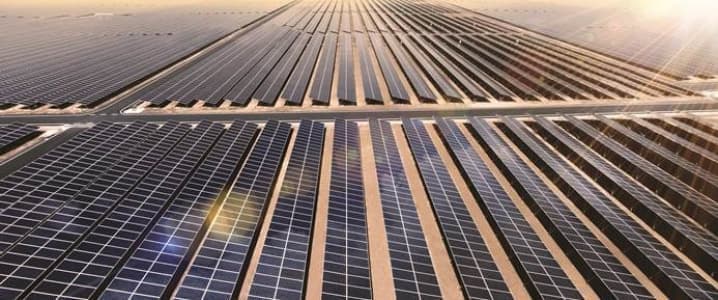When CNN did a poll on voter sentiment towards Democrat presidential hopefuls, some may have been surprised to see that the top concern of the sample seemed to be climate change. Many regular consumers of media content, however, would not have been surprised, as climate change is finding itself in the spotlight daily—so much so, that some presidential candidates from the Democratic Party have made it the axis around which their campaign spins.
Top among these candidates is Washington Governor Jay Inslee—a true climate advocate who has made his climate plan the number one issue of the day. Inslee was ranked as the top performer in terms of climate change plans by Greenpeace, and he recently released the final version of his comprehensive plan to reduce the advance of climate change. The plan will cost US$9 trillion over 10 years and will focus on "all clean, renewable and zero-emission energy in electricity generation by 2035," which will come from solar and wind, although commentators note that the plan does not exclude nuclear and carbon capture technology.
Senator Bernie Sanders, another notable 2020 hopeful, is not wasting time developing his own climate change platform. Instead, Sanders is advocating the passing of the Green New Deal as a means of tackling climate change. He is also in support of a full ban on fracking as a proponent of the “Keep it in the ground” school of thought, and also a ban on fossil fuel exports.
The Green Manufacturing Plan of Senator Elizabeth Warren stands out in the climate crowd: it focuses on research and development of greener energy technologies rather than following the herd in promoting solar and wind. There is even a business aspect to it: working with foreign governments to encourage them to buy American-produced green energy tech. Warren’s plan is significantly less costly than Inslee’s—or the Green New Deal, which she supports as well—at “just” US$2 trillion. Related: Nuclear Energy Just Isn’t Competitive In The U.S.
Speaking of cost, the most expensive climate action plan in the Democrat group so far is the one presented by Michael Bennett, which features “a Climate Bank to catalyze $10 trillion in private sector investment in innovation and infrastructure that creates new markets for American businesses not just at home, but also around the world.” Bennett also prioritizes land and ocean conservation and expanding people’s access to zero-emission electricity and vehicles.
Beto O’Rourke is another member of the Democratic crowd who has been making energy headlines, especially after he first took some oil money for his campaign but then signed the No Fossil Fuel Money Pledge and returned it. O’Rourke’s climate plan, at US$5 trillion over 10 years, envisages—just like all the others—closing off federal lands for oil and gas drilling as well as other undsurprising and non-specific points such as “Create unprecedented access to the technologies and markets that allow farmers and ranchers to profit from the reductions in greenhouse gas emissions they secure;” and reduce methane emissions.
Other candidates are not as notable in their climate change plans. Some don’t even have specific climate platforms yet, but chances are they will fix this mistake as climate change shapes up as a top issue at the upcoming first Democratic debates this week. As a Vox story notes, it would be a waste of time to talk about scientific evidence in support of climate change or that urgent action is needed. What the candidates will need to get down to will be the specifics of their proposed policies. It is specifics that seem to be lacking in most of these ambitious zero-emissions-by-2030 plans and it is these specifics that any such plan needs in order to work; the “how” not the “what”. Let’s see how many of the hopefuls have the practical hows to fight climate change.
By Irina Slav for Oilprice.com
ADVERTISEMENT
More Top Reads From Oilprice.com:
- Gasoline Prices Soar As Largest East Coast Refiner Is Set To Close Shop
- Mexico Moves To Ramp Up Oil Production
- The Golden Asteroid That Could Make Everyone On Earth A Billionaire


















